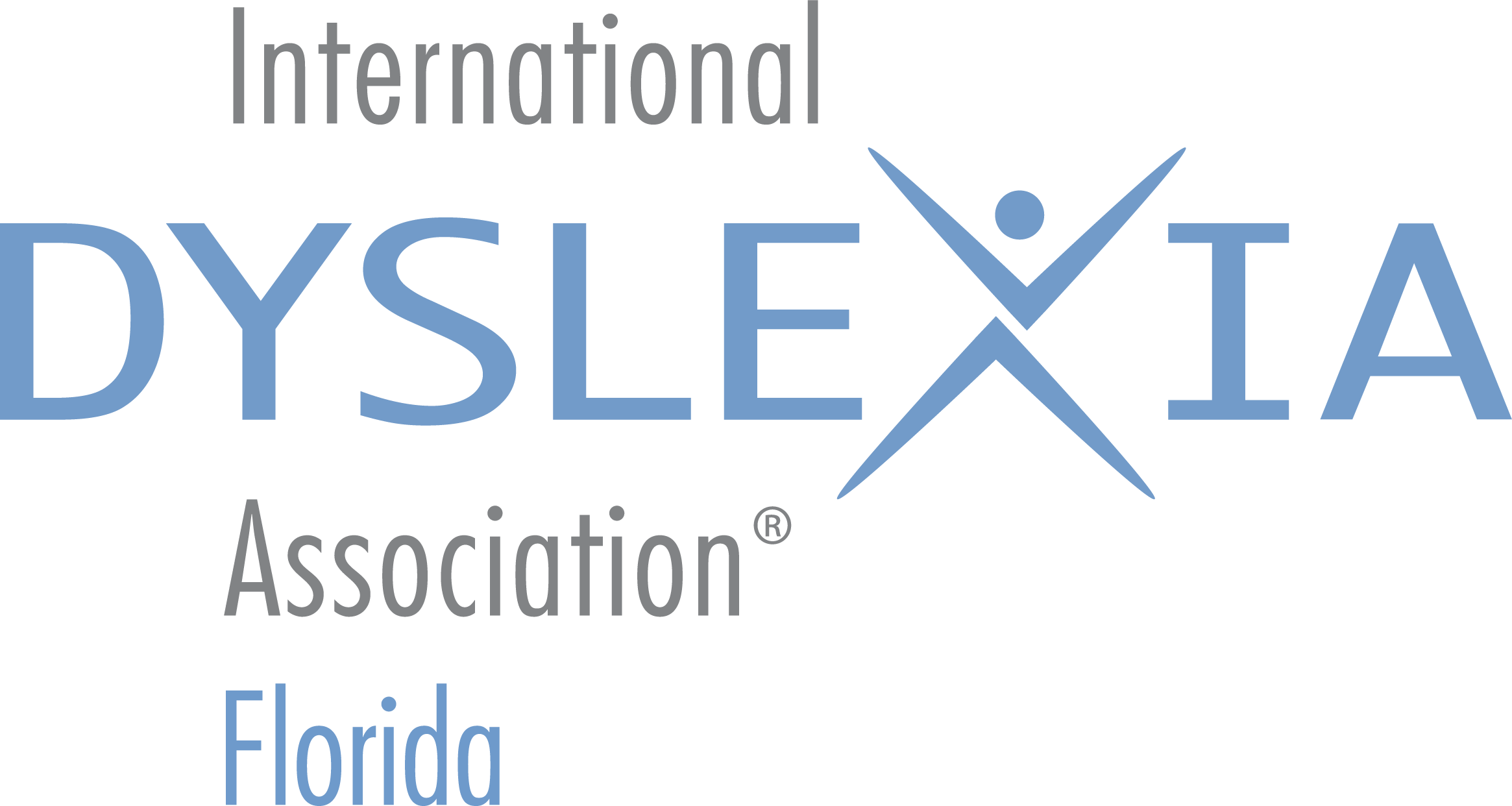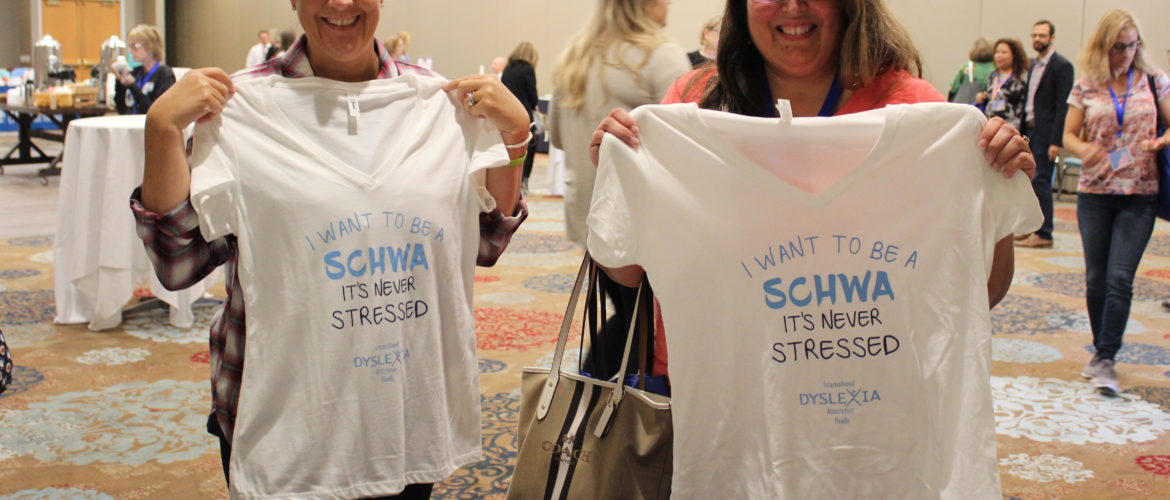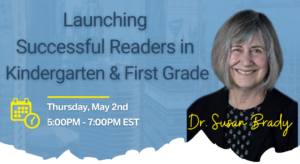Launching Successful Readers in Kindergarten and First Grade
The importance of phoneme awareness and other foundation skills for beginning readers is well documented. Yet, unfortunately, there are widespread misunderstandings about how phoneme awareness skills develop and about how they should be taught. In this session, the misunderstandings will be evaluated, drawing on research findings that clarify how phoneme awareness actually develops and that provide guidelines for effective teaching of phoneme awareness and other foundation skills both to beginners and to older struggling readers. Questions and discussion will follow.
About the Presenter
Susan Brady received her Ph.D. in Cognitive Psychology at the University of Connecticut in 1975. She presently is a Professor Emerita at the University of Rhode Island where she was a faculty member in the Psychology Department for 35 years. She held additional positions at the University of Sussex, St. Andrews University, and Haskins Laboratories. Concentrating on topics in the field of literacy, her research has focused on language factors in reading development and in reading difficulties: in 2009, she was the recipient of the Samuel T. Orton Award, IDA’s Research Award. In addition, Dr. Brady has been committed to translating the implications of the large body of reading research for practice and has conducted multiple grant-funded professional development projects. She has served on the Board of Directors for the International Dyslexia Association and for Haskins Laboratories. She recently was invited to be a member of the Evidence Advisory Panel for the newly formed Evidence Advocacy Center, the goal of which is to establish evidence as the basis of a professional education system.
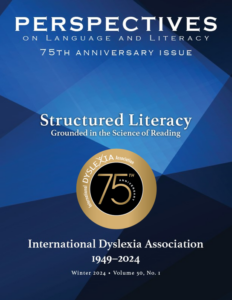
IDA Launches 75th Anniversary Edition of PerspectivesExciting news! The International Dyslexia Association proudly presents the highly anticipated 75th Anniversary Edition of Perspectives on Language and Literacy. This milestone publication offers invaluable insights into Structured Literacy, a crucial aspect of modern literacy instruction. Within its pages, readers will find contributions from leading experts in the field, providing comprehensive perspectives on the importance and practical application of Structured Literacy instruction. As literacy practices evolve, it’s essential for educators, parents, and stakeholders to stay informed and equipped with the latest research and methodologies. This anniversary edition serves as a beacon of knowledge, guiding readers through the intricacies of Structured Literacy and empowering them to foster literacy success for all learners. Whether you’re a seasoned educator or a concerned parent, this edition of Perspectives promises to deepen your understanding of literacy instruction and inspire positive change in educational practices. Join us in celebrating this milestone and explore the transformative power of Structured Literacy. For more information and to view our resource website today at www.dyslexialibrary.org. |
Welcome
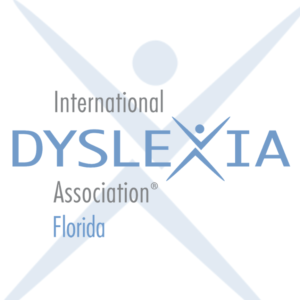
The International Dyslexia Association (IDA) is a 501 (c)(3) non-profit, scientific, and educational organization dedicated to the study and treatment of the learning disability, dyslexia. The purpose of the IDA is to pursue and provide the most comprehensive range of information and services that address the full scope of dyslexia and related difficulties in learning to read and write…in a way that creates hope, possibility, and partnership, so every individual has the opportunity to lead a productive and fulfilling life, and society benefits from the resource that is liberated.
IDA-Florida’s vision is that students in Florida will receive Structured Literacy instruction, provided by effective teachers, who understand the Science of Reading. Our mission is that IDA-FL will be the state leader in the awareness and dissemination of current knowledge, research, and resources regarding dyslexia and related language-based learning disabilities. We will provide guidance, based on the Science of Reading, that informs appropriate assessment, Structured Literacy instruction, and intervention. This information will be available to all stakeholders, including children and adults with dyslexia, their families, teachers, and related professionals.
We invite you to join our mission to serve those whose lives are impacted by dyslexia and related learning challenges.
Florida Literacy Association 2024 Annual Conference
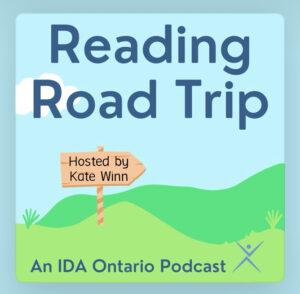 |
In each episode of Reading Road Trip from IDA Ontario, host and classroom teacher, Kate Winn, explores evidence-based literacy instruction with a fabulous guest. From researchers and authors to educators and advocates, they’re all sharing practical ideas that can be implemented now in your class, school or district!
Check out S2 E8: Dyslexia Facts, Myths and Strategies with Dr. Jack Fletcher! Kate chats with Dr. Jack Fletcher, unpacking all things dyslexia: Risk factors and prevention, dyslexia vs dysteachia, instructional tips, wait-to-fail, and dyslexia myths and misconceptions. |
Watch Recordings of Previous Webinars on Our YouTube Channel
The Reading Comprehension Blueprint: The Why, The What & A Bit of the How! with Nancy Hennessey
Expert Webinar Series Presented in Partnership between Glean Education + Washington State OSPI

|
Identifying and Teaching Students with Foundational Reading Difficulties Nationally-recognized professor of psychology, Jack Fletcher, Ph.D. discusses how to identify and teach students with significant reading problems and dyslexia within an MTSS framework. |
Join IDA!
By joining our organization, you will be in the company of the world’s foremost researchers, teachers, professionals, and parents dedicated to helping individuals with dyslexia, their families and those that support them. Your membership will not only give you exclusive access to this extraordinary community but will also help support Structured Literacy teacher preparation and training required to help thousands of children in the years to come.
What is Dyslexia?
Dyslexia is a language-based specific learning disability, that is neurobiological in origin. It affects the phonological component of language. Characteristics include difficulties with accurate and fluent word recognition, spelling, and decoding abilities. Students with dyslexia require Structured Literacy instruction, based on the Science of Reading. Click on What is Dyslexia above for a complete definition and more information.
Rethinking How to Promote Reading Comprehension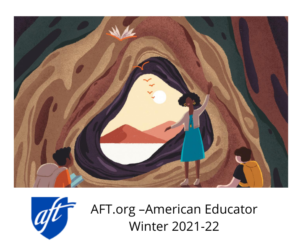
by Hugh W. Catts
Reading comprehension is not a skill someone learns and can then apply in different reading contexts. It is one of the most complex activities that readers engage in on a regular basis, and the ability to comprehend is dependent upon a wide range of knowledge and skills. Despite a common view about comprehension, several lines of enquiry have recognized the true complexity of reading comprehension for some time. One individual may have multiple levels of comprehension ability depending upon what they are reading and why they are reading it. Chief among the factors influencing reading comprehension is background knowledge. Why is knowledge so critical for comprehension? To begin with, it provides a framework for organizing incoming information and guides the reader as a text is read through. Not only does knowledge improve comprehension, but comprehension allows the reader to build new knowledge. This article discusses comprehension as skill myth, shares a more accurate and complex model of comprehension, highlights the role of knowledge and what it does for comprehension, and provides implications for instruction and assessment.
The International Dyslexia Association (IDA) has launched the premier Dyslexia Digital Library at www.dyslexialibrary.org!
 The Dyslexia Digital Library houses an extensive collection of IDA’s most informative articles, fact sheets, infographics, and videos organized in a searchable, user-friendly site that also includes frequently asked questions and trending topics. Families can learn strategies to help them advocate for their child with dyslexia, reading teachers can find guidance on applying the principles of Structured Literacy in their classrooms, researchers can review the work of their peers—these are just a few examples of how to use the library.
The Dyslexia Digital Library houses an extensive collection of IDA’s most informative articles, fact sheets, infographics, and videos organized in a searchable, user-friendly site that also includes frequently asked questions and trending topics. Families can learn strategies to help them advocate for their child with dyslexia, reading teachers can find guidance on applying the principles of Structured Literacy in their classrooms, researchers can review the work of their peers—these are just a few examples of how to use the library.
This free resource, funded in part by a generous donation from the Georgia Branch of IDA, will continue to grow with new content and new features in the days ahead. “Globally, it is estimated that between 5-10% of the population experience dyslexia, which equates to around 700 million people worldwide, says CEO Sonja Banks. “As an organization, we are committed to helping everyone who struggles to read by provided the tools and resources individuals, educators, and researcher need until everyone can read.”
Dyslexia in the Classroom: What Every Teacher Needs to Know
Many elementary school teachers have limited resources related to dyslexia and other learning differences. Dyslexia in the Classroom: What Every Teacher Needs to Know was developed to open the door for these educators to a better understanding of dyslexia.
This handbook is intended to support all teachers in their passion to help every child reach his or her fullest potential. Use it to raise awareness, share best practices, and be a resource to your school’s administration and staff.
Inside you’ll learn more about find topics such as:
- Signs and symptoms of dyslexia
- Classroom strategies, tips, and tools
- Components of effective reading instruction
- Screening, evaluation, and diagnosis
We encourage you to share this handbook with as many people as possible. The more educators we can inform, the more children we can help!
Structured Literacy: Applying the Science of Reading in the Classroom
Suzanne Carreker, Ph.D., CALT-QI, Principal Educational Content Lead, Lexia Learning
Structured Literacy instruction is informed by the Science of Reading, which is the only proven way to ensure students can become proficient readers and confident learners across the curriculum.
Although this instruction is beneficial for all students, it is essential for students who are at risk for reading difficulties. By implementing the components, principles, and instructional practice that align to both the Science of Reading and Structured Literacy, administrators, teachers, and parents are assured that all students will receive the multifaceted literacy instruction they need for reading and academic success.
Click here to read the entire white paper by Suzanne Carreker.
Do You Think You Might Have Dyslexia?
Take a brief 10 question self-assessment.
Looking for Local Dyslexia Resources in Florida?
CERI Provider Directory- Florida
IDA Provider Directory- Florida

Share this page with your friends…
